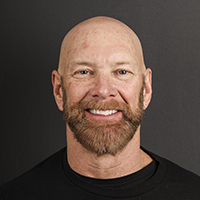
Classroom Hours
Day: M-F 8:00 a.m. - 11:00 a.m.
Day: M-F 12:00 p.m. - 3:00 p.m.
Eve: T-Th 4:00 p.m. - 9:00 p.m.


Non-destructive inspection technicians work with engineers to define and implement tests that locate and characterize material conditions and flaws that might otherwise cause planes to crash, reactors to fail, trains to derail, pipelines to burst and a variety of less visible but equally troubling events.
The Non-Destructive Inspection (NDI) program teaches the primary inspection and testing methods for a variety of materials and products. This program teaches theory and application as it pertains to detecting flaws, contamination or defects without damaging or degrading items being inspected and tested. Students gain a solid understanding of NDI principles and primary NDI testing methods. Upon successful completion of the program, students are qualified as a trainee in accordance with American Society for Nondestructive Testing (ANST) Recommended Practice No. SNT-TC-1A (Personnel Qualification and Certification in Nondestructive Testing), CP189 and NAS-410. This is the first step toward certification by an employer.
Program Objectives
To successfully complete the program, students must demonstrate competency in specific skills and verify their knowledge of industry-standard practices. Program objectives include the following skills and topics:

Ken is an NDI professional with over 35 years of experience in the industry. Before coming to Ogden-Weber Technical College, Ken worked on Hill Air Force Base as a technician, supervisor, and finally the Director of the NDI Flight where he was responsible for assigning and evaluating the work of his employees, as well as investigating new inspection technologies.
Office Hours: M-F: 8 a.m. – 11 a.m., M-F: 12 p.m. – 3 p.m. by appointment | Location: Business Depot Campus 210
Student Support Specialists are professionally trained and available for all students at the college. They are available to assist students who have questions regarding their program, progress and attendance, and program changes. The specialist can assist students with campus and program policies or procedures, student rights, as well as the policy and processes involved in student complaints. The student support specialist staff is also available to discuss personal/family matters, address emergency situations, and provide referrals to college and community services. Habla español.
Meet with Joshua →

Admissions advisors help potential students explore college programs, become familiar with the resources available (including financial assistance), get in touch with instructors and more. Contact or visit Admissions to learn more.
Schedule an appointment with Andrew → Location: Manufacturing Tech 100HNon-destructive inspection is a means of inspecting a part without harming it so that it can be placed in service or continue to be used in service. NDI affects everyone’s life without them even knowing about it. NDI is used to inspect airplanes, automobiles, rocket motors, buildings, bridges, power plants, amusement rides, pipelines, ships, military weapons and more. All of these products have had some form of NDI performed on them at some point.
Non-destructive inspection is applied physics.
We take physical energy’s interaction with materials and develop and utilize ways to transform it into meaningful information via sensors, detectors and display methodologies.
Working in the nondestructive inspection field will give you the opportunity to work in many different environments, from a laboratory to an offshore oil platform, in any part of the world.